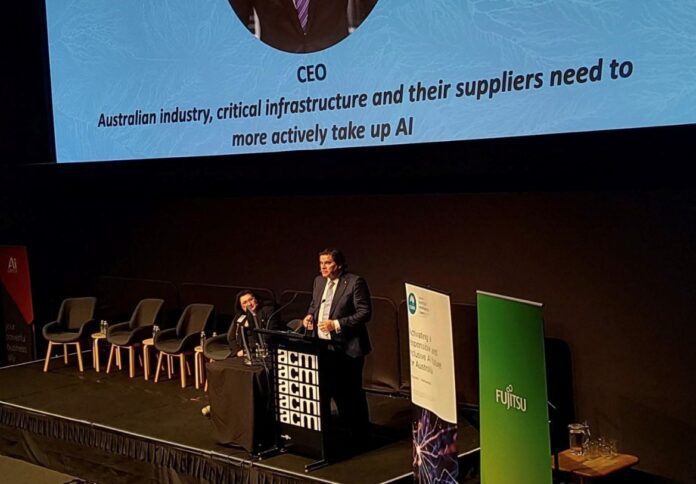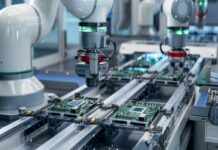
Australian industry, including critical infrastructure and their suppliers, is being encouraged to embrace AI more actively, and Innes Willox, Chief Executive of the Ai Group, addressed this imperative at the AI in Industry Day hosted by the CSIRO National Artificial Intelligence Centre.
The event, held at ACMI, Flinders Street, Melbourne, aimed to foster understanding and adoption of AI solutions within the Australian industrial landscape.
According to Willox, the Ai Group, celebrating its 150th year, has a history of guiding businesses through transformative periods, including wars, economic downturns, and pandemics.
Currently, the organisation is concentrating on tackling the major challenges of the 21st-century economy, namely Digitalisation, Decarbonisation, and Diversification, with Willox emphasising that the incorporation of artificial intelligence is essential in addressing these challenges.
While some member businesses create AI solutions, most are consumers of AI, similar to other businesses and the Australian community as a whole.
Willox underscored that embracing AI is a responsible action for businesses, as it has the potential to transform operations, improve productivity, enhance competitiveness, and contribute to global sustainability goals.
“It will bolster resilience in our supply chains, providing cushioning in the face of potential geostrategic shocks. And more than we have for decades, we face repeated and prolonged geopolitical shocks,” he noted.
Willox disclosed that the Ai Group is collaborating with CSIRO to provide a platform for companies to explore and implement AI solutions.
The organisation said it believes that practical workshops reduce the mystique surrounding AI, leading to increased contracts, exploration of new technologies, and optimisation of existing digital capabilities.
He acknowledged that despite the growing sense that AI is ubiquitous, Australia lags behind comparable countries in the adoption of robotics, assistive tech, and IoT in industry.
The speech outlined various challenges faced by businesses, including changing organisational mindsets, leadership gaps, data use complexities, interoperability issues, cybersecurity concerns, and the perpetual challenge of justifying AI-related expenditures.
Willox highlighted the importance of celebrating incremental success, fostering a technology-adaptive culture, and finding use cases outside of production and core business to drive AI adoption.
He underscored that the core challenge lies in cultural and skills development rather than financial constraints.
“Skill needs in advanced manufacturing and critical infrastructure are broad and deep. The sectors need a mix of technical, generic and leadership skills. However, robotics and AI will increase the importance of digital within the skills mix. Skills in the digital space will be essential for not just specialist roles but the entire industrial workforce,” Willox explained.
The speech concluded by emphasising the need to uplift the capability of leaders and managers to develop and execute new business strategies that position Australian businesses as leaders in the global AI landscape.
Willox expressed his hope that Australia would courageously create and leverage AI to thrive in the “digitalised, decarbonized – and sometimes disrupted – world.”



















